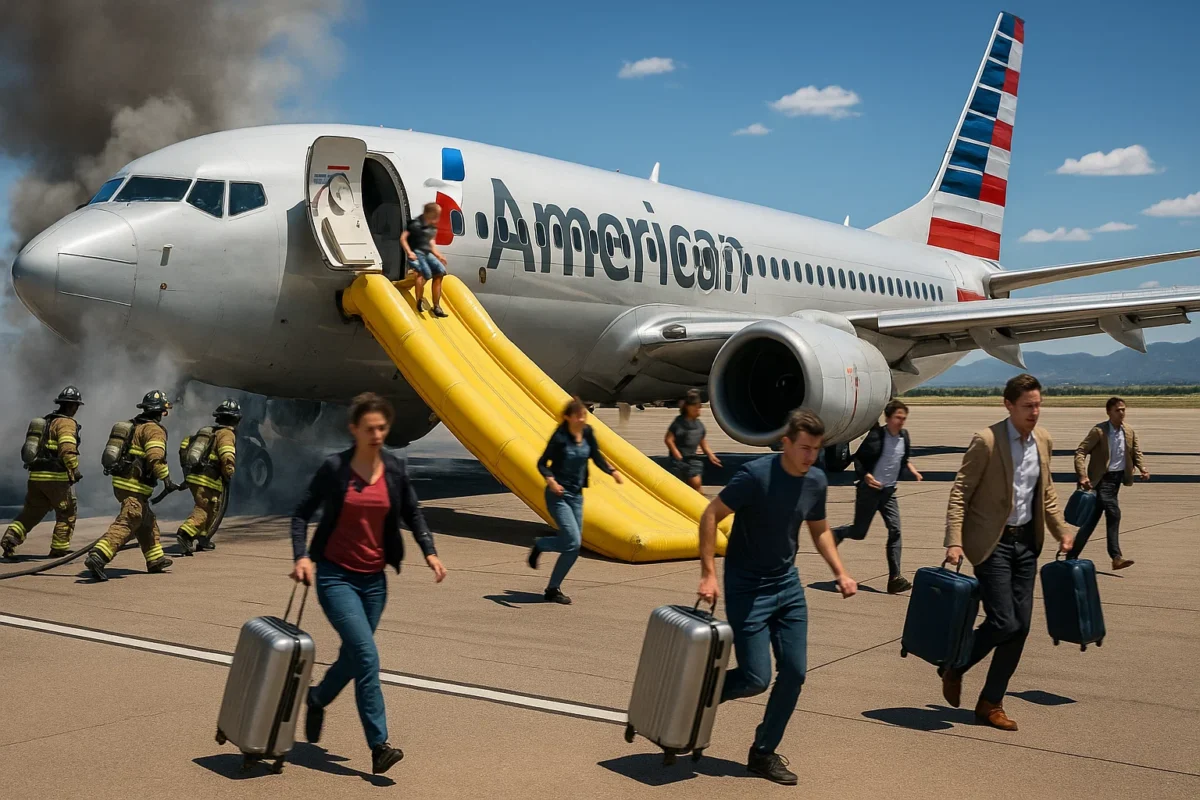DENVER, Colorado — July 28, 2025. Two days after American Airlines Flight 3023 aborted takeoff at Denver International Airport, the nation is once again discussing priorities. Specifically, whether your roller bag is worth more than 90 seconds. Video shows passengers hustling down the slide, some with kids, some with phones, and several with carry‑ons, while firefighters extinguish what the airline later called a “minor isolated brake fire.”
The Washington Post reports that the 737 MAX 8, scheduled from Denver to Miami, carried 173 passengers and six crew. Air traffic control warned of “a lot of smoke” and “flames.” Passengers described a “loud boom,” violent shaking, and, in one cinematic detail, a wheel rolling past the fuselage. The airport briefly initiated a ground stop; by evening, Denver had over 300 delays. American swapped in a replacement jet the next day to carry AA3023 to Miami.
Save Lives First, Then Your Suitcases
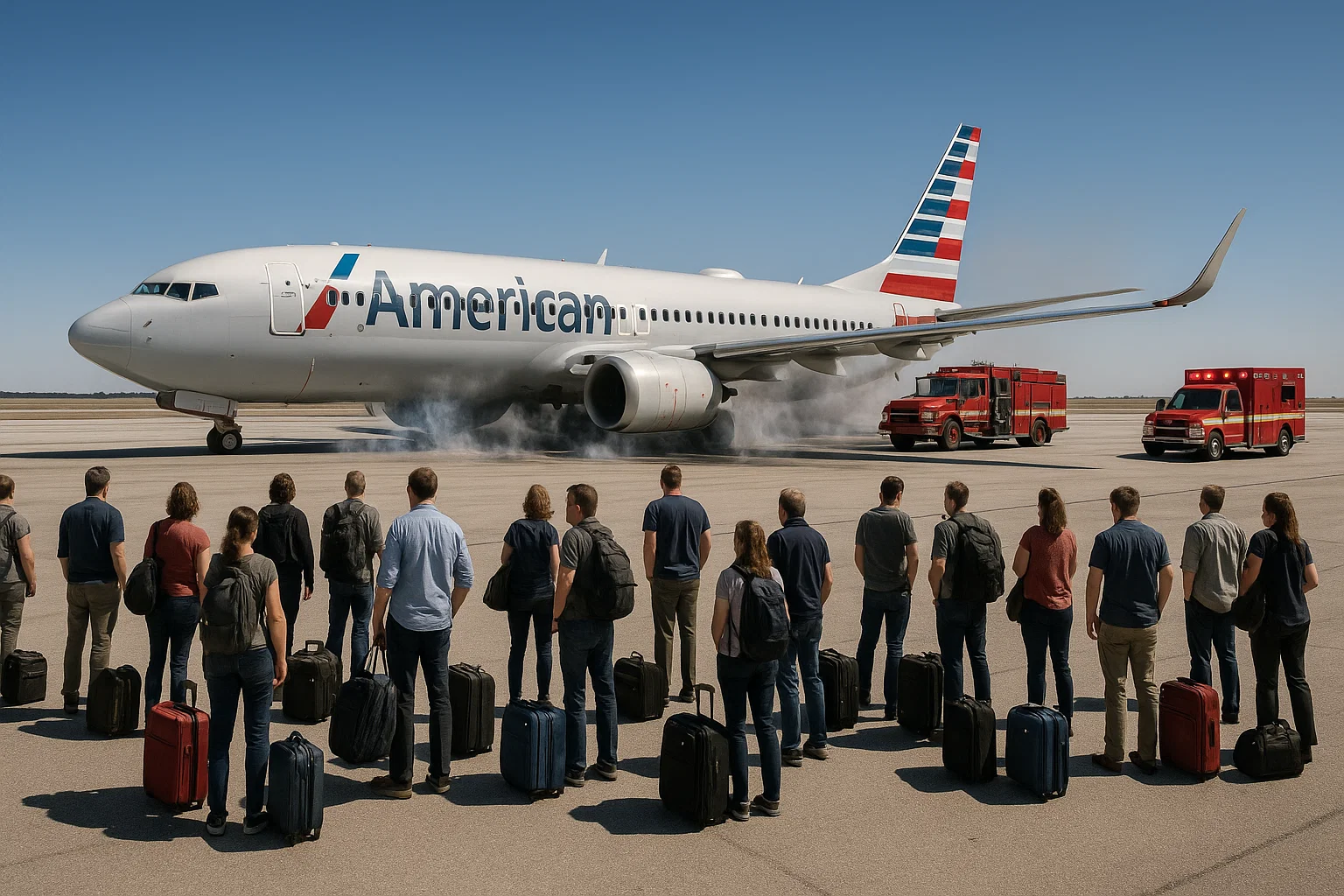
Authorities say the crew reported a possible landing‑gear issue around 2:45 p.m. MT as the aircraft accelerated for takeoff. They rejected the takeoff and stopped as smoke and flames appeared at the left main gear. The Denver Fire Department put the fire out quickly. American later framed the event as a blown tire plus hard braking that triggered a localized brake fire.
Everyone got off: 173 passengers, six crew, one transported with a minor injury, five assessed and released. It’s the kind of outcome that makes safety professionals proud and PR teams grateful, right up until the footage pans to a passenger cradling a roller bag like it’s the last lifeboat off the Titanic.
The Church of the Holy Carry‑On
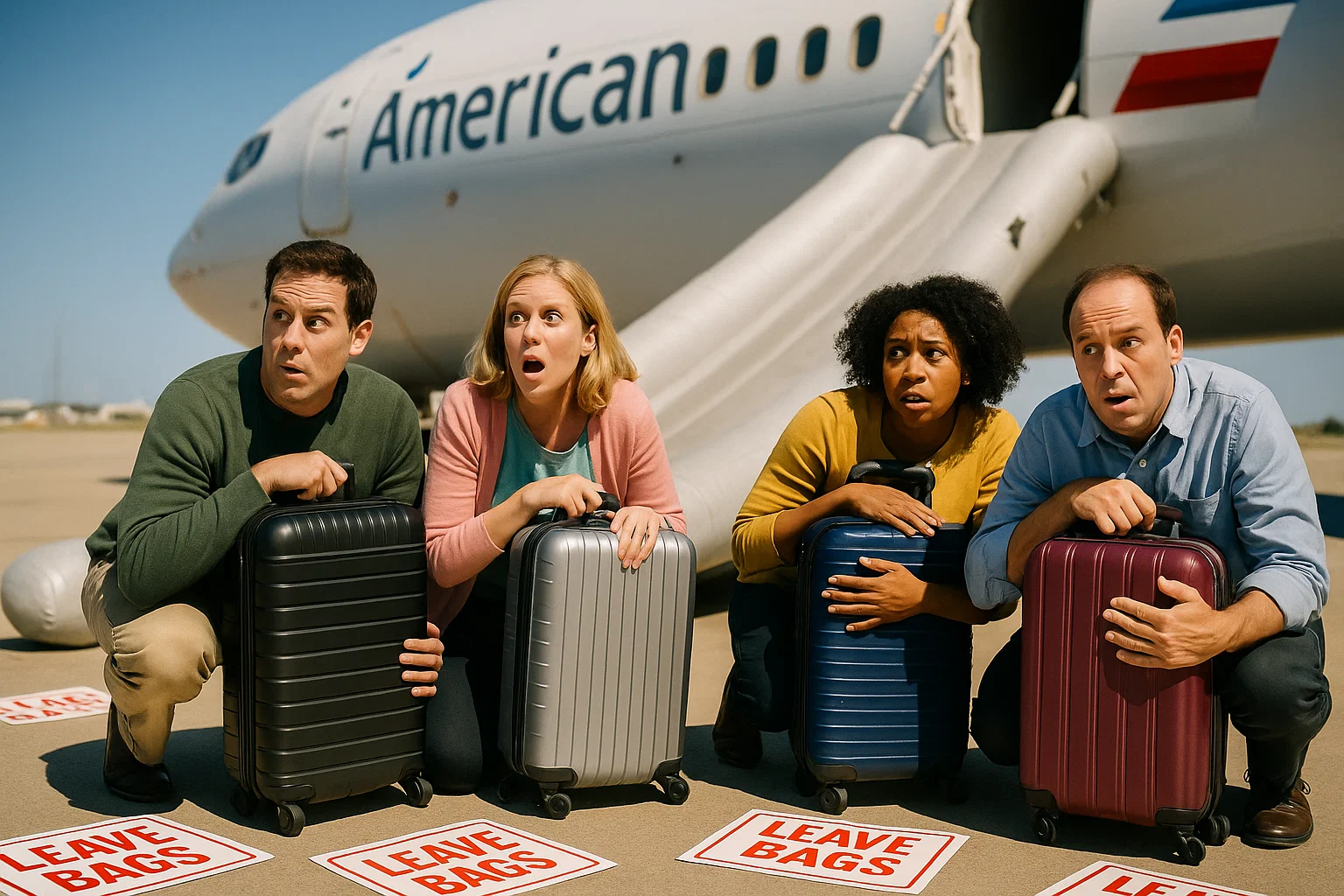
Despite years of safety briefings, signage, and common sense, modern evacuations reveal a stubborn truth: we are a nation spiritually united by the belief that our personal item is a person. The FAA’s emergency evacuation guidance is unambiguous, leave belongings behind, because bags slow the line, snag door frames, and can puncture slides designed to whisk a full airplane to safety in roughly ninety seconds.
And yet, in every video, the faithful appear: pilgrims descending the slide, gripping four‑wheeled aluminum relics like sacred texts. The smoke thickens, the flames lick at the gear, and someone shouts “Leave the bags!”, to which America replies, “Absolutely, right after I locate my AirTag.”
Slide Priority Boarding™
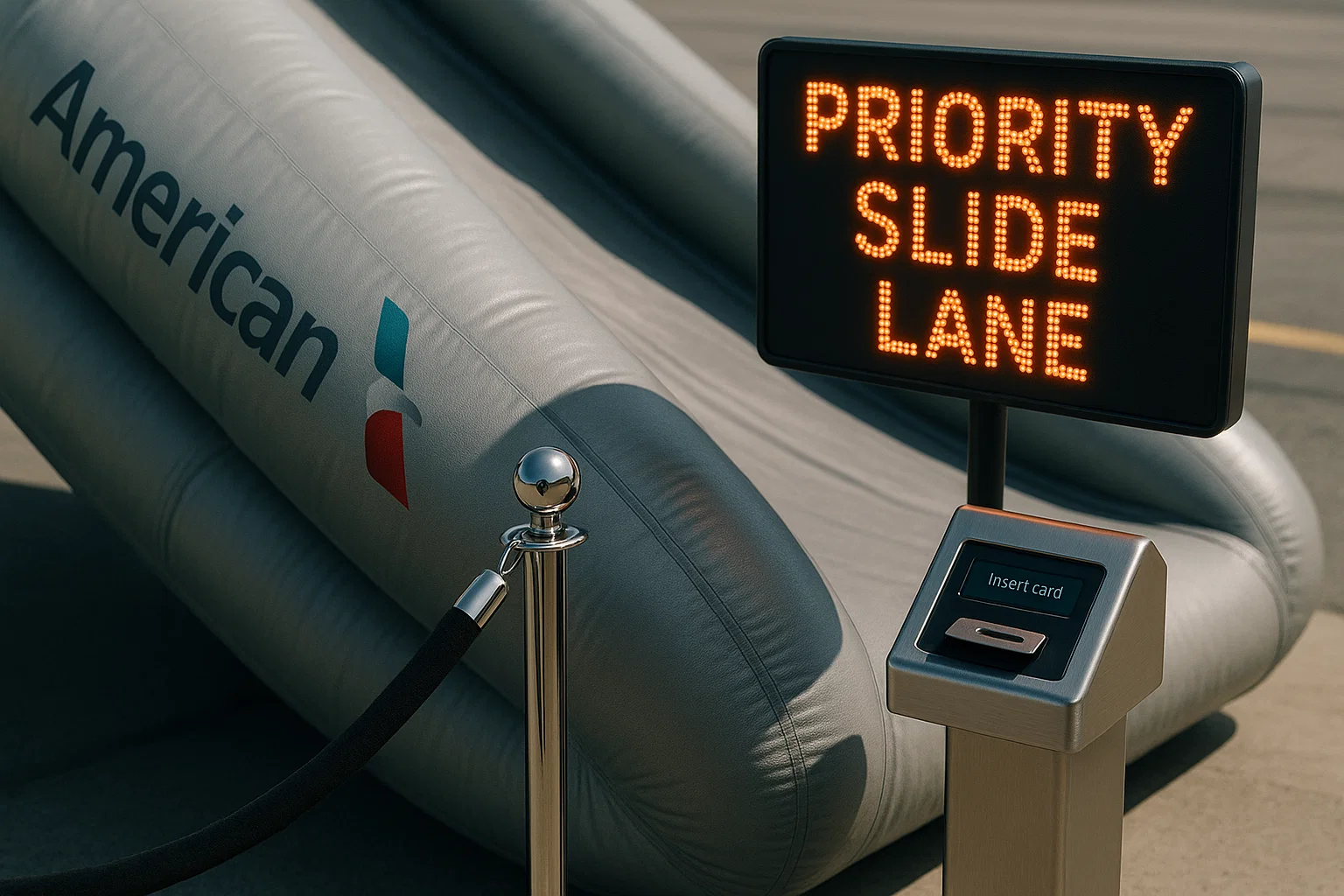
If status exists, status will be applied. In a world where boarding begins with Pre‑Pre‑Board and ends sometime next Tuesday, it’s only natural to imagine an elite‑tier evacuation: Executive Platinum receives complimentary head‑of‑slide access and a gentle push for optimal throughput, while Basic Economy is asked to “stand clear of luxury” and await instructions on the tarmac. The legal disclaimer, printed in six‑point font on the safety card: hard‑sided luggage may puncture slides and void your upgrade.
Would such a system work? Absolutely not. But it would communicate a lesson the soft‑sell hasn’t: the fastest way to keep your valuables is to abandon them temporarily and let everyone live long enough to file a baggage claim. The FAA’s 2020 Emergency Evacuation Standards ARC even suggests tightening pre‑flight wording so no one leaves the cabin unsure about the “leave the bags” part.
“Minor, Isolated Brake Fire”: The New Corporate Color Wheel
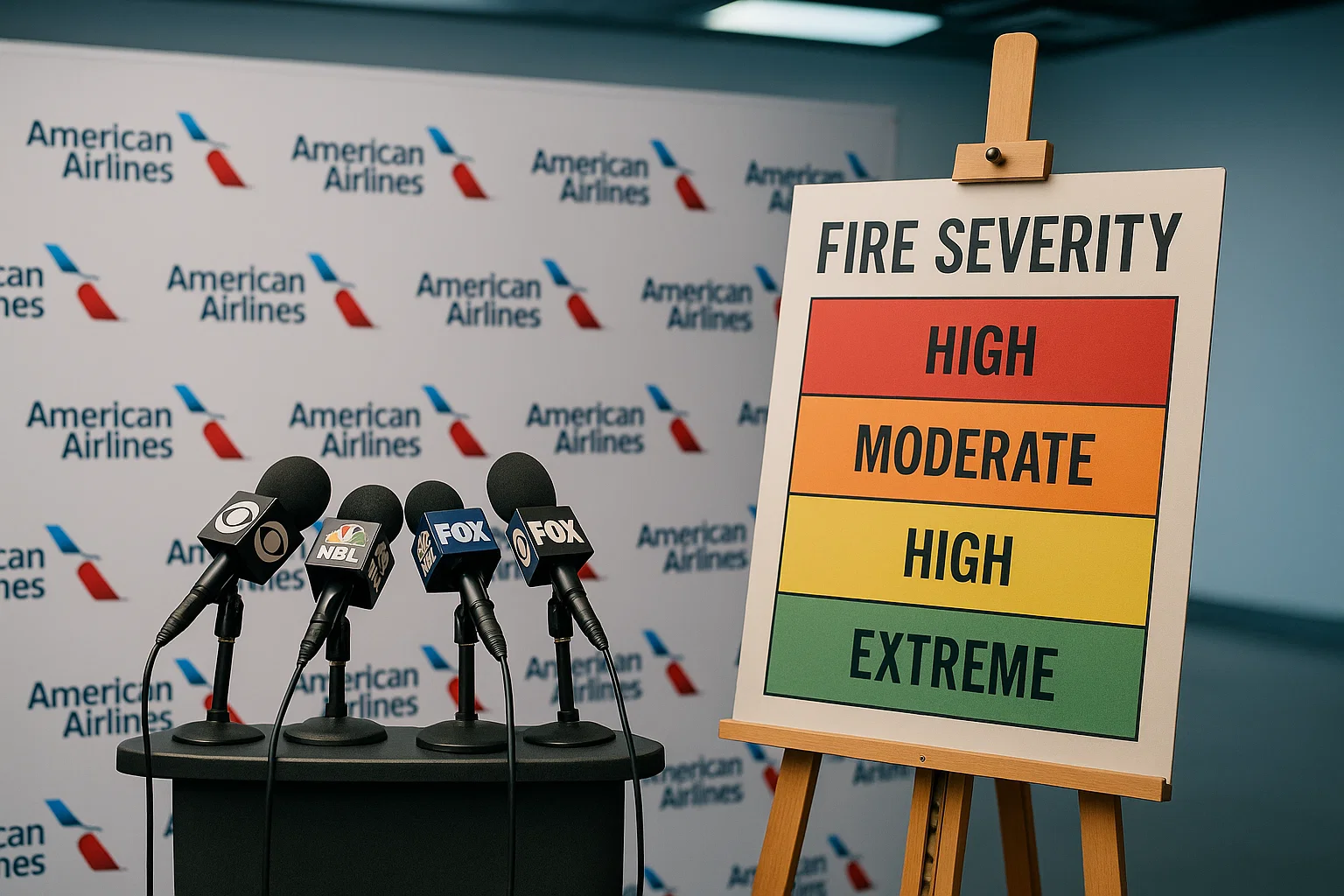
Public relations, like aviation, is an art of precision. To the cameras, the scene looked biblical, smoke tower rising, flame at the gear, a sprinting wheel cameo, while to the statement, it was a “minor isolated brake fire” that was promptly extinguished. Both can be true, but one pairs better with a social clip.
Hence the invention of a new severity scale for press releases: Calm Mist → Assertive Smoke → Passionate Brake → Overly Enthusiastic Tire → Media Availability. The airline removed the aircraft from service and apologized; the FAA launched an investigation; and the internet, acting in the spirit of peer review, demonstrated that euphemism combusts on contact with 4K video.
Safety Demo, Rebooted
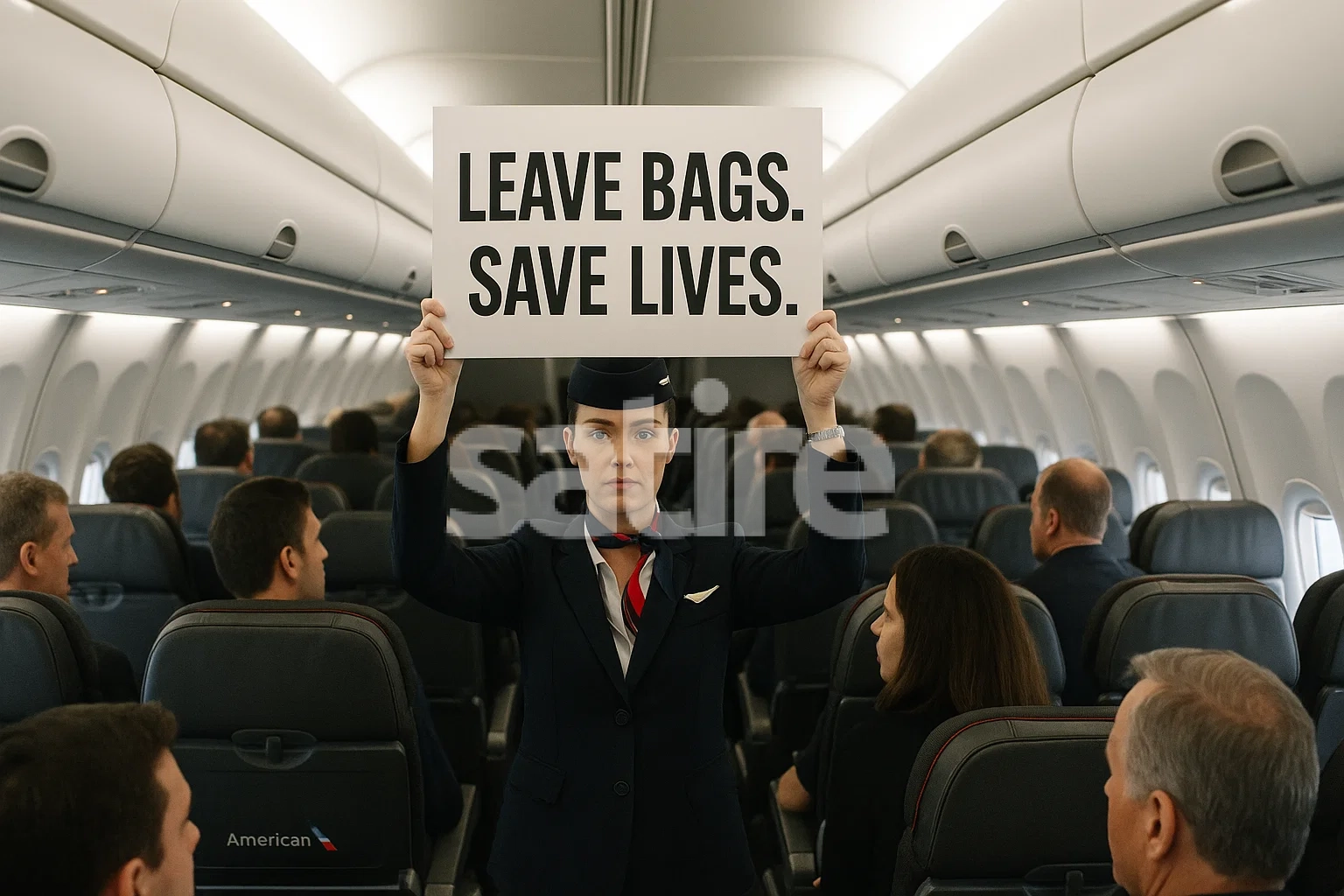
Perhaps it’s time to modernize the safety card. Instead of a tasteful pictogram of a serene traveler stepping into the night, give us a bright, unmissable panel that reads: LEAVE BAGS. SAVE LIVES. Follow with an illustration of a suitcase shredding a slide like a cheese grater. Add a QR code to an explainer video narrated by a firefighter who has personally hosed down three “minor isolated brake fires” and would like to get home for dinner.
The 90‑second certification target was never designed for a cabin full of influencers, strollers, and metallic luggage. The 2024 FAA-sponsored review of evacuation behavior makes it plain: we need blunt words, better demos, and more realism. Put differently: if you love your bag, set it down.
Credits Where Due (and A Final Plea)
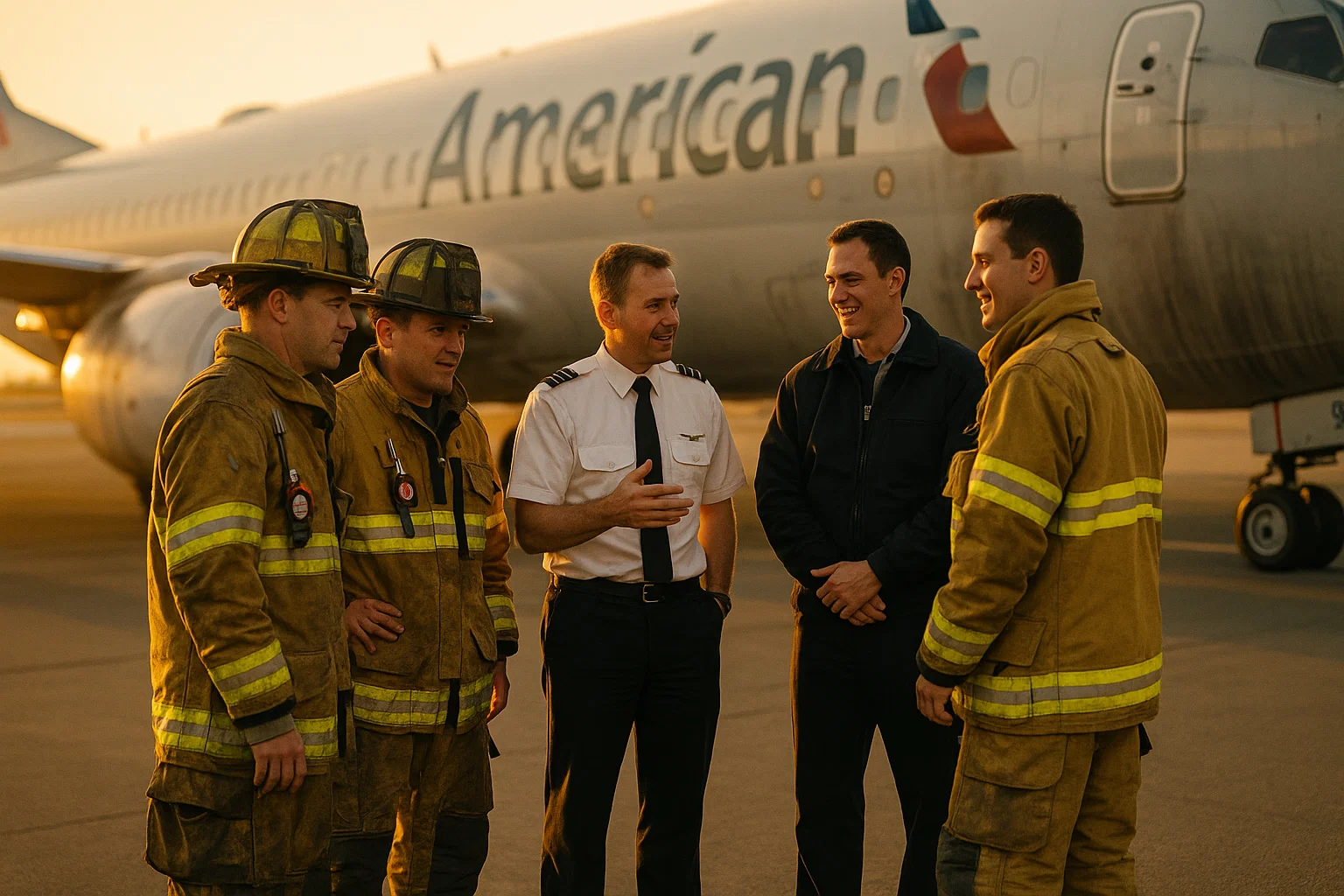
This outcome, one minor injury transported, five evaluated, everyone alive, is the result of training, coordination, and a fast, professional response by the flight crew, Denver’s first responders, and airport operations. The videos are dramatic because the risks are real; the ending is mundane in the best possible way. The replacement aircraft completed the trip; the story moved from “breaking” to “lessons learned.”
So here’s the plea, delivered with humor because the alternative is shouting: the next time you hear “Evacuate,” pretend you’ve just been upgraded, to humanity. Drop the bag. Grab a hand. Get off the airplane. You’ll see your suitcase again. With any luck, you won’t see another slide. That’s how the system is supposed to work.
Follow us back to The Takeoff Nap for more.

